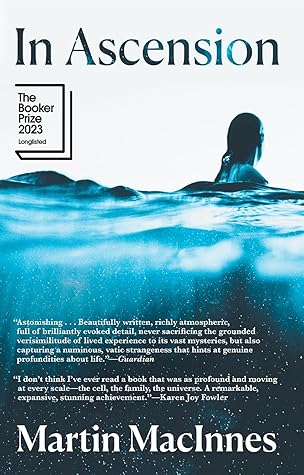More on this book
Community
Kindle Notes & Highlights
The fact that this person could still be surprised by little things like this, someone considered to be old, seemed incongruous and unlikely, even absurd. She was still a child. We all were. This never changes, it never leaves us, this sense of beginning, of always beginning, of always being young.
In truth, the relationship had been on the verge of ending anyway, and the job offer was an excuse. Dana did her best to disguise her relief when I told her the news. Eighteen months together and still we lived apart. I liked staying at hers, having the option of a separate place to go to. Relationship as vacation, addendum to real life. We hadn’t even spoken in the three weeks since I’d left Amsterdam.
I set middle-of-the-night alarms so I could feed it, and when I couldn’t sleep I watched the video feed, the greys and greens and still whites, until it lulled me under. I liked the musty, mealy odour that remained on my hands from contact even through the gloves. I smelled my fingertips repeatedly, a habit that Helena, when she noted it on the video screen, said was definitive proof I was spending far too much time alone.
‘A shadow aspect? Is that what you guys are doing at JPL all day?’ ‘Well . . . I guess you can say that if we’re able to do this, and we really start to explore space, then we disprove the theory. The filter, if there is one, was early, was cellular. Which would be reassuring, at least.’ ‘Maybe. It’s another reason to go ahead with the mission. Unless it comes even later. The filter, not the technology that lets you explore space, but what you find – what you contact – when you get there.’
There was now general agreement that the thrust design was an alien technology transmitted through Datura. The dreams that delivered the information to the engineers were connected to the ovals carved onto the object and to the empty-brackets message sent back from the Voyager space probe. What it all meant – why we had been given this power, and why now – no one knew.
So, at the end of Sim 1, I drove him and K to China Lake, and had Lin and James show them round, take them through the process from beginning to end. Soon after, he seemed his usual self again. I empathised, to an extent; the horror he registered, at eating something to sustain you that is itself capable of drawing a route towards the nearest star.
I asked her eventually, gently, if she’d like to send messages back. Anything – the television, the kettle boiling, the sound of Erika coming in through the door. I heard her cough lingering through the cold winter, the doors closing, windows creaking open, footsteps approaching and then receding as she searched for something she couldn’t recover, couldn’t name. Eventually her records stopped; perhaps she’d listened, and been confused and upset by what she’d heard. I didn’t say anything, but continued sending my own unfiltered audio, the background hum of my own life, my own form of
...more
I feel the force applied to my chest as the g level rises. I work on my breath; I know I should close my eyes but I can’t avoid looking through the porthole at the increasingly perfect blue sky. And now the blue is thinner and the force on my chest intenser. The
They shouldn’t smell us or watch us eat or hear us rehearse our nightmares in the grinding of our teeth, knowing that at the climax of the journey we’ll be subject to speeds approaching 32 million miles per hour.
It’s not that she’s afraid of flying; she isn’t consciously avoiding airports, and in fact has flown several times in the months following the announcement of Leigh’s death. But after so long away, the violence of the accelerations, combined with the casual transfer of blocks of people across large distances, unnerves her.
Are they using this alien acceleration tech on commercial airliners now? This could explain mass intellectual disease.


